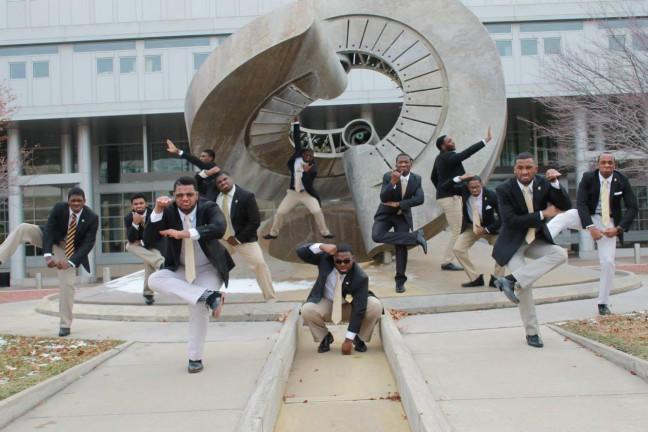During rush season every fall, many Badgers meet and greet with hundreds of their peers in Greek life, but several fraternities and sororities are not among the more than 50 other Greek organizations holding public rush events.
As one of seven active Black Greek Letter Organizations on campus, Alpha Phi Alpha recruits new brothers in a different, “organic,” way, by making friends first and then seeing if they want to become members.
Black Greek Letter Organizations, or BGLOs, like Alpha Phi Alpha are relatively small and account for only 1 percent of Greek life on campus, according to a UW statement.
While they may be small in numbers, BGLOs like Alpha Phi Alpha serve as a support system for students of color on campus and in the community, Alpha Phi Alpha President, Cesar Gutierrez said.
Budget decisions could deepen historic underrepresentation of black students at UW
Originally from Brooklyn, New York, Gutierrez is a first generation immigrant and Latino. Before coming to UW, Gutierrez’s identity as a male Latino was never questioned. But when he came to the midwest, he was frequently categorized as black.
“It’s not something I was used to — I didn’t always want to be an Alpha,” Gutierrez said. “I thought if I joined Alpha Phi Alpha, they are going to think that I am black for sure, and that would completely negate a part of my identity that I value — that I really hold dear to myself.”
But after some research on the background of the fraternity and its mission, and realizing he was already friends with several Alpha members, Gutierrez said joining the Alphas could help him become a better person.
Gutierrez’s story is similar to many other members of Alpha Phi Alpha, while the other members may come from different backgrounds, each has faced disparities that have brought them together.
Alpha member Kenneth Cole, like Gutierrez, joined the chapter after moving from Los Angeles to attend UW. After coming to a predominately white campus, Cole said he realized how people tend to gravitate toward people who are similar to them.
Cole said it was an isolating experience. It wasn’t until he saw these black male students, providing great services around the campus and the community, that Cole said he found a place that felt welcoming to him — that place was within Alpha Phi Alpha.
“It was a place that I felt welcomed, where I felt I could be empowered,” Cole said.
University of Wisconsin senior seeks to spark change on campus through action
Cole said Alpha Phi Alpha tries to create spaces for people to feel welcome and safe. The Alpha’s host several discussions about what it means to be a minority on campus, as well as speak on behalf of any other underprivileged or underrepresented groups.
The Alpha’s also volunteer in a variety of community service programs like Family Voices and the March of Dimes.
When it comes to recruiting new Alpha members, Gutierrez said the Alpha’s hold informational meetings to see what types of students may be interested in joining. From there, interested students can approach the Alphas at any time, and become friends with the members and really get to know them before they decide if they would like to become a member, he said.
“We try to form genuine, organic relationships,” Gutierrez said.
The Alphas also try to communicate with other sororities and fraternities, but communication is difficult if members don’t know anyone in other fraternities or sororities, Gutierrez said.
Gutierrez stressed Alpha Phi Alpha is not an organization that is against the general majority student population. Members of Alpha do not see it as BGLOs versus the white fraternities on Langdon, Gutierrez said.
“We feel like we try to serve a purpose where we can really bridge the gap between different communities and try to bring as many people together so we can achieve so the campus feels as inclusive as possible,” Gutierrez said.













